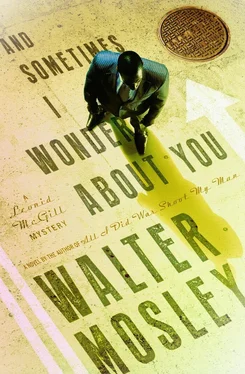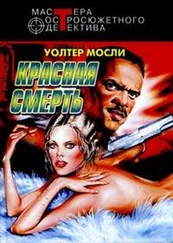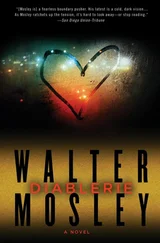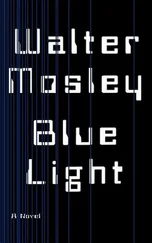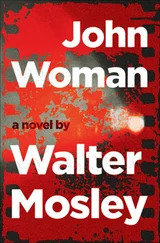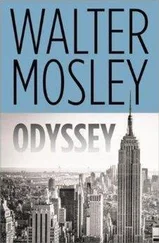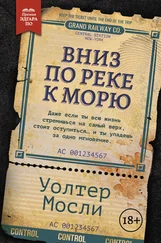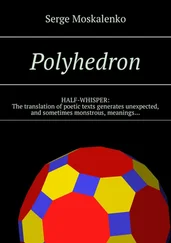“Sure. But he’s in the wind right now.”
“What’s that mean?”
“He’s scared. Me and Twill met with him down at South Street Seaport and told him that we need information to give to you so you could catch the motherfucker. He had Twill’s number and said he’d call when he knew the next time Jones was meeting his people.”
“You don’t have an address, a phone number, nothing?”
I stuck out my lower lip and shook my head.
“Where’s Mardi?” the canny cop asked.
“After the break-in I gave her the week off. She’s down in the Bahamas with her little sister.”
“I want to look through her desk,” he said.
“Not without a warrant.”
“You got something to hide, LT?”
“Always. You know Mardi got information on a dozen clients at her desk. I can’t have you stickin’ your nose into all that.”
From inside my pocket the phone played its little melody.
Kit was staring at me.
The phone finally gave up.
“I could arrest you, LT.”
“Don’t I know it, brother,” I said, reminding myself of Hush. “But I’m telling you the truth. The men shot at you killed Hector Laritas and the man you call Hiram Stent. And I have a mole in the Jones Gang. Give me three days, a week tops, and I will give you the wherewithal to bring down that whole mob.”
Kit stared at me. It wasn’t a friendly gaze. Though almost everything I had just said was the truth, it was selective and he knew it. But Jones for him was like a naked pinup model asking directions: wherever she wants to go, you do too.
“Three days,” the captain said at last. “And the DA will be in touch to depose you about the shootout.”
“Always happy to do my civic duty, Captain.”
I walked the captain all the way to my newly rebuilt front door, saw him out, and watched him until he disappeared around the corner. Only then did I close that door and throw its seven locks.
I was halfway back to my private office when the phone sounded again.
“Hello.”
“Paulie DeGeorges, Mr. McGill,” the scammer fop said.
“Mr. DeGeorges,” I hailed. “And how are you on this glorious fall morning?”
“Fine,” he said, a little breathless at receiving true etiquette. “I was just telling Violet that it’s warm enough that we could picnic in Central Park.”
I heard his ex-wife utter something in the background.
“What did she say?”
“Nothing. She was expecting you to give her that money, I guess,” he said to me, and then to her, “Quiet, honey, we’re doin’ some business.”
Violet was not about to be shushed and she said so. I heard her yelling and then a few other noises. Finally there came the sounds of open air and traffic.
“Sorry, Mr. McGill,” Paulie said. “Violet gets angry and the only thing that cures it is either time or martinis.”
“What you got for me, Mr. DeGeorges?”
“I talked to Coco and she said that she’d agree to meet you but she wanted me there too.”
“When?”
“As soon as you can.”
My knuckle and cheekbone were both throbbing to the beat of my heart. That’s life, said the Buddha and Sinatra.
“That Excellent Bean joint only had a front door, right?” I asked.
“Yeah?”
“I’ll get that seat in the back,” I said. “She and I can sit there and talk. You take a place near the front to make sure I don’t do anything hinky.”
“I don’t know if she’ll like that,” Paulie cautioned.
“That’s the only way I’ll do it. Tell her. Bring a gun if you need to. I don’t care. All I want is some private conversation with her.”
“I’ll ask.”
“See you there in forty-five minutes.”
Fifteen minutes later I was ensconced at the same table Paulie had claimed the day before. I could have made it in ten but first I took some money from the wall safe where Mardi was storing the deposits I’d given her. I put a certain amount in a brown envelope.
At the Excellent Bean I perused a monograph by an uneven writer I read sometimes. The title of the book was The Graphomaniac’s Primer: A Semi-Surrealist Memoir. The book was less than a hundred pages, printed but from a handwritten manuscript; mostly composed of entire pages of letters written in rows wedged so closely together that they morphed into various textures. The page of lowercase a ’s enchanted me. It was reading without reading. There was a scattering of prose pages and a few drawings in between. The essays were about neuroses and how humans could not survive without them, and also brief analyses of memoir, art, and even a few possibly autobiographical sketches.
“Mr. McGill?”
I looked up to see Coco/Celia dressed in dark blue jeans and a light blue T-shirt. She wore no makeup or jewelry. Her eyelashes were her own and the blue and white tennis shoes on her feet could have been bought at any time over the last sixty years.
“Coco?” I said. “Celia?”
She glanced back toward the entrance. Paulie was sitting at the table closest to the door, trying to look like a bodyguard. His shirt was yellow, his jacket deep green, and his bow tie white with red polka dots.
“Paulie told me to tell you that he has a gun,” she said.
“Good for him,” I said brightly. “Have a seat, will you?”
She considered my request, looked back at Paulie, and then lowered to sit at the very edge of the walnut chair across from me.
She was thinner than in her photographs and there were dark patches under her eyes.
“What else did he tell you?” I asked.
“That you were a detective who specialized in cases like mine and, and that you could help me, maybe... I mean if you thought that it was in your best interest.”
“It’s like we were brothers,” I said.
“Who,” she said and then she swallowed. “Who sent you?”
“A man named Hiram Stent.”
The question lodged itself in her brow before making it to her lips.
“Who is that?”
“I’m told he’s a distant cousin of yours on his mother’s side.”
“But, but I don’t know him.”
“And neither did he know you,” I said. “But a lawyer in San Francisco sent a man of many names to ask Hiram if he knew about you. The lawyer offered a lot of money for knowledge of your whereabouts.”
Celia jerked her head around frantically, expecting to see men coming for her from every corner. She looked so frightened that Paulie stood up from his chair.
I held up a hand to assure both the popinjay and the stripper that there was nothing to worry about.
“Hiram never found out anything about you,” I said. “And I didn’t take his case anyway.”
“Then why are you here?” she said, almost shouting.
A few heads at surrounding tables turned our way.
“After I refused him somebody murdered Hiram; probably the man of many names. I’m willing to bet that Hiram told the man that he tried to engage me but that I had warned him, Hiram, that the whole thing was probably a scam. Most likely that’s what got him killed and my office door blown off its hinges.”
“I don’t understand anything you’re saying,” the petite young white girl said.
“I know,” I commiserated. “It’s very complex. But I can cut through the fog by saying that it all started when you stole a thirteenth-century edition of Herodotus’s Histories from a private library called the Enclave.”
The surprise on Celia’s face was gratifying. I always liked it when I had a fact by the nuts.
“You know about that?”
“Didn’t Paulie tell you?”
“He just said that you might be able to help.”
“He’s right about that. I might be able to help if you can answer some questions.”
Читать дальше
